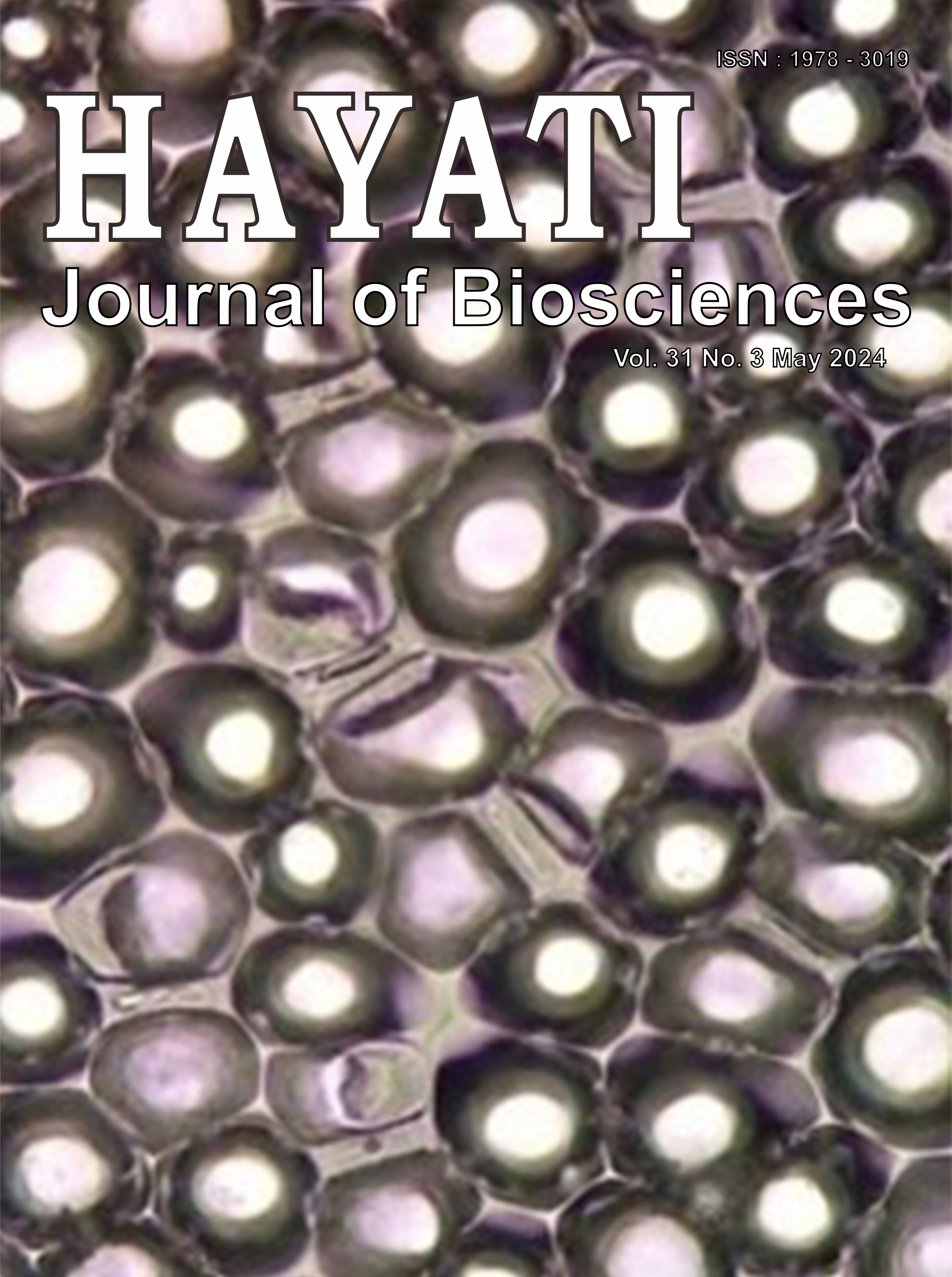In Vitro Medium-Term Storage of Banana Cultivar ‘Barangan’ Using Alginate-Encapsulation Technique
Abstract
In vitro medium-term storage using the alginate-encapsulation technique is essential for conserving plant genetic resources, preserving vegetatively propagated species by controlling the growth and development of explants, and maintaining plant biodiversity. The study aimed to obtain the optimum combination medium for the encapsulation of bananas and evaluate the viability of the alginate-encapsulated explants after storage. In vitro, medium- term storage of nodule-like meristem of banana cultivar ‘Barangan’ was performed using sodium alginate, paclobutrazol (PBZ), and Murashige and Skoog (MS) salt. This research consists of 3 stages: (1) Initiation and multiplication of in vitro shoots and nodule-like meristems; (2) In vitro medium-term storage of banana by encapsulation technique; (3) Regeneration of nodule-like meristem explants after in vitro storage. This research showed that the banana's number of nodule-like meristem was optimum on media supplemented with thidiazuron (TDZ) 0.22 mgL-1 and indole 3-acetic acid (IAA) 1.75 mgL-1. Encapsulation explant of nodules-like meristems using 3% sodium alginate in full and half-strength MS salt medium supplemented with PBZ 2.5 mgL-1 and incubated in liquid MS medium was able to store nodule-like meristem for six months. The color of the explants remains green, and the capsule is not damaged. Sub-culture of nodule-like meristem after storage in MS salt medium containing TDZ 0.22 mgL-1 and IAA 1.75 mgL-1 showed that nodules-like meristems could regenerate to form new shoots and nodule-like meristem three months after sub-cultured. This research concludes that encapsulated nodule-like meristem was recorded until six months of storage. PBZ was a necessary retardant in minimizing the growth during storage.
Downloads
Copyright (c) 2024 Reni Indrayanti, Nadia Fitria Wulandari, Agus Sutanto, Rizal Koen Asharo, Adisyahputra

This work is licensed under a Creative Commons Attribution-NonCommercial 4.0 International License.
HAYATI J Biosci is an open access journal and the article's license is CC-BY-NC. This license lets others distribute, remix, tweak, and build upon author's work, as long as they credit the original creation. Authors retain copyright and grant the journal/publisher non exclusive publishing rights with the work simultaneously licensed under a https://creativecommons.org/

























.png) IPB University
IPB University Department of Biology
Department of Biology The Indonesian Biological Society
The Indonesian Biological Society 

